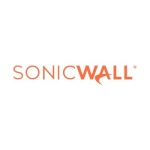What is our primary use case?
We are specifically using 7.0 Firepower in several different areas. We have them as an IPS within the core, IPS on the edge, and we're also using the AnyConnect Client as our basis for VPN connection into corporate and other applications.
How has it helped my organization?
Firepower NGFW has improved my organization in several ways. Before, we were trying to stamp out security threats and issues, it was a one-off type of way to attack it. I spent a lot of manpower trying to track down the individual issues or flare-ups that we would see. With Cisco's Firepower Management, we're able to have that push up to basically one monitor and one UI and be able to track that and stop threats immediately. It also gives us a little more granularity on what those threats might be.
We were able to stop hundreds of threats. For killing threats, we were able to get several hundred now in comparison to the one-off that we used to be able to do.
Dynamic policies are very important for us because we do not have the manpower to really look at everything all the time. So having a dynamic way of really registering, looking at, and having certain actions tied to that are incredibly effective for us in slowing any kind of threat.
We're getting there as far as using the application, using it to go to the application level, we're at the infancy of that. We're looking at definitely tying that into our critical applications so that we can see exactly what they're doing, when they're doing it, and being able to track that.
Firepower's Snort 3.0 IPS allows us to maintain performance while running more rules with the advent of 3.0 comparatively to 2X, we have seen at least a 10 to 15% increase in speed where it seems to be more effective. The updates seem to be more effective in finding malicious information. We've definitely seen at least a 10 to 15% increase on tying policy to 3.0.
What is most valuable?
The features that we find the biggest bang for the buck are for Firepower overall. We're looking at AnyConnect, which is one of the big features. The other valuable features are IPS along with the Geotagging and the Geosync features, and of course the firewall, the basic subset of firewall infrastructure and policy management.
We've looked at other vendors, but Cisco by far has taken the lead with a holistic approach where we don't have to manage multiple different edges at one time. We can actually push policy out from our core out to the edge. The policy can be as granular as we need it to be. So the administration, also the upgradability of the edge is for us because we need to have it 24/7. The upgradability is also another piece of management, logging, and all the other little aspects of the monitoring part.
Using deep packet inspection, especially with 7.0, since it's just come out in 7.0, we're able to see much more granularly into the packet where before we could actually give a general overview using NetFlow. This gives us much more granularity into what is exactly happening on our network and snapping in the Cisco StealthWatch piece gives us the end-to-end way of monitoring our network and making sure that it's secure.
The overall ease of use when it comes to managing Cisco Secure Firewall is one of the reasons that we ended up going with Cisco because the ease of use, basically having one UI to be able to control all of our end devices, policy, geolocation, AnyConnect, all the different pieces of that in one area has been phenomenal.
Cisco Secure Firewall helped to reduce our firewall operational costs because previously if we were not using Cisco's Firepower, we would have had either Cisco ASA or another manufacturer, and we would have had those everywhere. We would have had still two at every site, several within our infrastructure, and the management of those is much more difficult because it's done by one-off.
As far as saving Adventist Health money, I would have to say that it's not necessarily the actual physical product, but the time, labor that we would have had to have to be able to monitor and administer that, and also the time to find malicious issues and security areas that we were unable to see before. So, it's tough to put a cost on that, but it would probably be several hundred thousand dollars overall if you're looking at whether we got hit with malware or with some of the other issues that we're seeing, especially within healthcare. If we were hacked, that would cost us millions.
What needs improvement?
One of the few things that are brought up is that for the overall management, it would be great to have a cloud instance of that. And not only just a cloud instance, but one of the areas that we've looked at is using an HA type of cloud. To have the ability to have a device file within a cloud. If we had an issue with one, the other one would pick up automatically.
The other part of that is that applying policy still takes longer than we expect. Every version that comes out, the speed is actually increased, but I would love to see that, even a little more as far as when we're actually deploying policy.
For how long have I used the solution?
We have been using Firepower's series for at least the last six years.
We're staggered right now. The Firepower Management Console is at 7.0 and most of our Firepower units are at 6.6.
We have two areas for deployment. We have them as an edge at our markets, we term our hospitals as markets, but each one of the hospitals will have an HA Pair of the Firepower model. And we also have them in our core, within the ACI infrastructure. We use them as a core firewall along with an Edge firewall.
What do I think about the stability of the solution?
We've been using Firepower, the Threat Defense, and the Management Console for about six and a half years and I think we've had maybe two issues with it. And most of those were due to either our policy settings or something that we messed up. We've never had to return a box and we've never run into any major bugs that have actually hindered the actual security of the system.
What do I think about the scalability of the solution?
Scalability so far has been fantastic because we started with four Firepower Threat Defense boxes, but really after that, now we have 14 and we're going to be pushing that to 44 to 46 devices. The implementation has been pretty seamless and pretty easy. It's been great.
We use it exclusively for edge and core for firewall and for policy and for IPS and AnyConnect. We plan on continuing to integrate that tighter. So in the future, we probably will not grow that many physical devices, but we plan on actually integrating those tighter into the system, tighter with integration, with Cisco's ISE, and tighter integration with our ACI infrastructure. So at the end of the day, we don't see us going any further away from using Firepower as our core security edge device.
How are customer service and support?
My company has been using Cisco for many years. One of the huge pieces for us is, of course, the supportability and ongoing update, maintenance, and care. We've had a great relationship with Cisco. The tech is outstanding. Typically, we will open a tech case and they will know exactly what the issue is within two to three hours if it's a very difficult one. Typically they even know what it is when we actually open the case.
We've actually had a fantastic relationship working with Cisco. They've had a fast turnaround, great tech support, and we have not run into any issues thus far with the Firepower overall.
Which solution did I use previously and why did I switch?
Prior to actually using Firepower, we were still a Cisco shop. We used Cisco ASA exclusively, and it was fantastic. But with the advent of Firepower, being able to manage, monitor, and upgrade has really cut back our time on those processes by less than half of what we had before. We were using the good old ASA for many years.
How was the initial setup?
We found that the initial setup using Firepower products was actually very simple. The initial configuration for the Management Console was very straightforward. Adding devices usually takes a few minutes. And then once you've got them physically set up in your Management Console, it's streamlined. It's actually very simple.
One of the great features of having the Cisco Firepower Management Console is having the ability to group. So we have each one of our hospitals as a group, so we can actually do any device configuration within a group. They're HA so that when we do an upgrade, it is seamless because when it fires off the upgrade, it will actually force the HA over automatically as part of the upgrade. And the other part of that is policy management. We have several policies, but specifically, one for the general use at our hospitals has been phenomenal because you build out one policy and you can push that out to all of your end nodes with one push.
We require two staff members to actually implement and devise the initial configuration.
At my company, you have to be at least a senior or an architect in order to manage any type of firewalling, whether that's the IPS, the actual firewall itself, or AnyConnect. So we have senior network engineers that are assigned for that task.
We typically have one person that will actually rotate through the group for the maintenance. There's a senior network engineer that will maintain that on a daily basis. Typically, it doesn't take maintenance every day. The biggest maintenance for us comes to updating policy, verifying the geolocation information is correct, and any upgrades in the future. So typically that takes about one to two people.
What about the implementation team?
We did not actually use any external authority as far as setting up, maintenance, and configuration. It all comes directly from Cisco because of our partnership with Cisco, we have had a fantastic cast of system engineers and techs when needed. We haven't had to go out of our partnership with Cisco to actually implement these, to upgrade, or update.
What's my experience with pricing, setup cost, and licensing?
Cisco's pricing is actually pretty good. We get a decent discount, but when you look across the board, if you're looking at a Cisco firewall, Firepower device, a Palo Alto device, or a Juniper device, they're going to be pretty comparable. A lot of people say, "Oh, Cisco is so expensive." But when you boil it down, when you look at the licensing structure for Firepower, you look at the actual device cost and how much that costs over time, they pretty much are right in line, if not less, depending on what you're buying for Firepower. So we've actually had a great run with that, and we feel confident that we're getting the best price. I haven't seen anything better than the supportability of that.
Which other solutions did I evaluate?
We actually did look at another vendor when we were looking at initially grabbing Firepower, to bring in as our corporate firewall and our main inspection engine. So we did look at Palo Alto and we also looked at Juniper SRX series, but both of those didn't really have the overall manageability and tightness with the Cisco infrastructure as we would want it to. So there was nothing necessarily security-wise wrong with them, but they were not a good fit for our environment.
What other advice do I have?
The biggest lesson that we've learned is in a couple of different ways. One is how to keep your policy clean. We've learned that we've really had to keep that from overextending what we want to do. It also has great feedback as you're building that out so that you can look at it and you figure out how you are going to be able to really implement this in a way that won't break something or that won't overshadow some other policy that you have. That's probably one of the biggest things that we've learned. The way that you build out your policy and the way that you use that on a daily basis is very intuitive. And it also gives you a lot of feedback as you're building that out.
The advice that I would give anybody looking at Firepower is to look at it from an overall standpoint. If you want something that you can monitor and administer well, that you can update very quickly, and that gives you all of the security aspects that anybody else can on the market, it's going to be really hard to beat because of the Management Console. With this, you've got one tool that you can actually do the device updates, device configuration and all the policy management in one area. So I would say, definitely take a look at it. It's got a great UI that is very straightforward to use. It is very intuitive and it works really well out-of-the-box. And it does not take math science to be able to implement it.
I would rate Firepower a nine out of ten. I can't think of anything that would be a 10. It's mature, it's effective and it's usable.
Disclosure: PeerSpot contacted the reviewer to collect the review and to validate authenticity. The reviewer was referred by the vendor, but the review is not subject to editing or approval by the vendor.


















